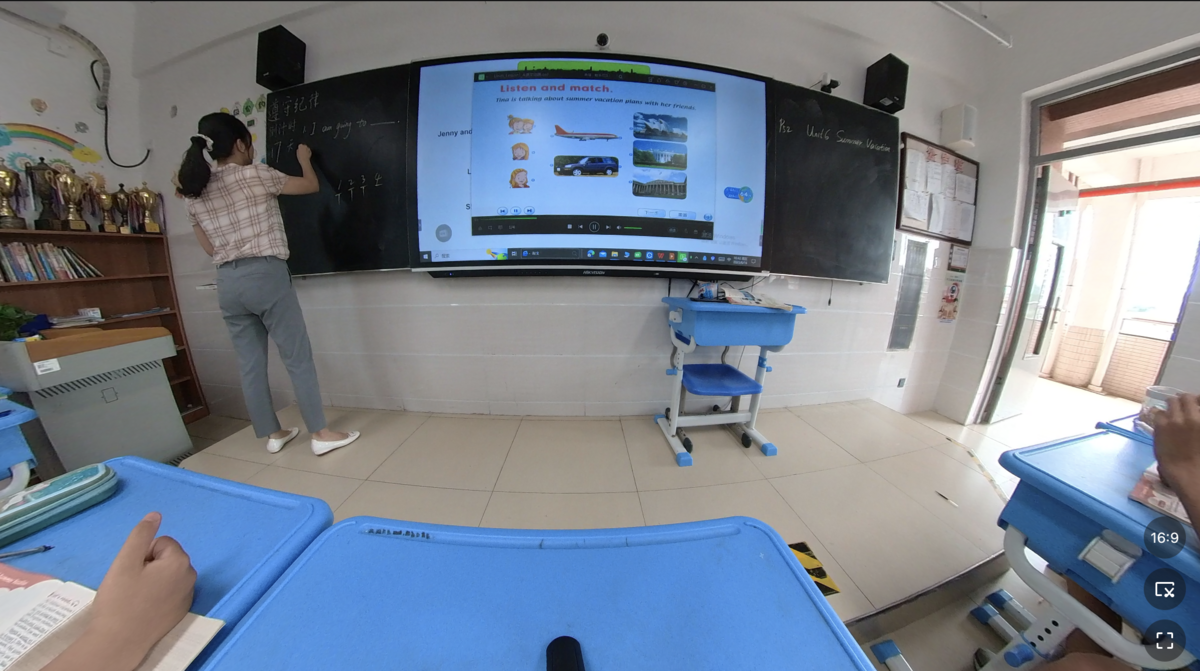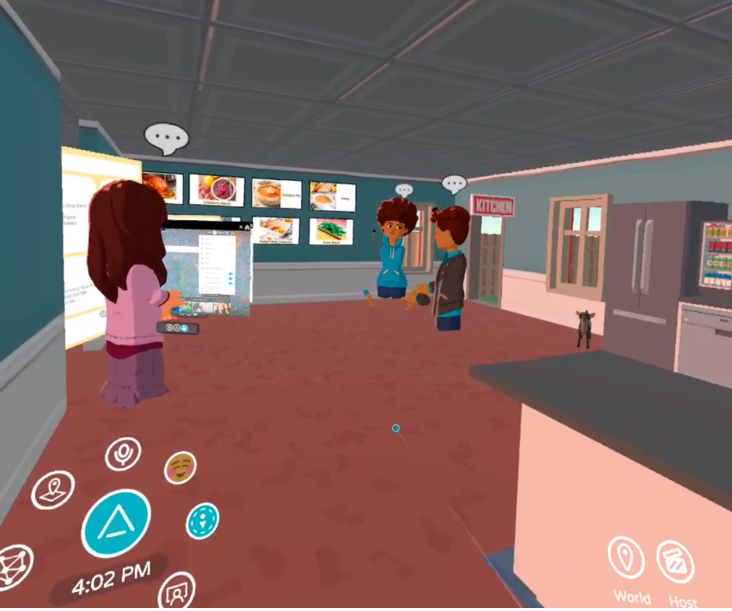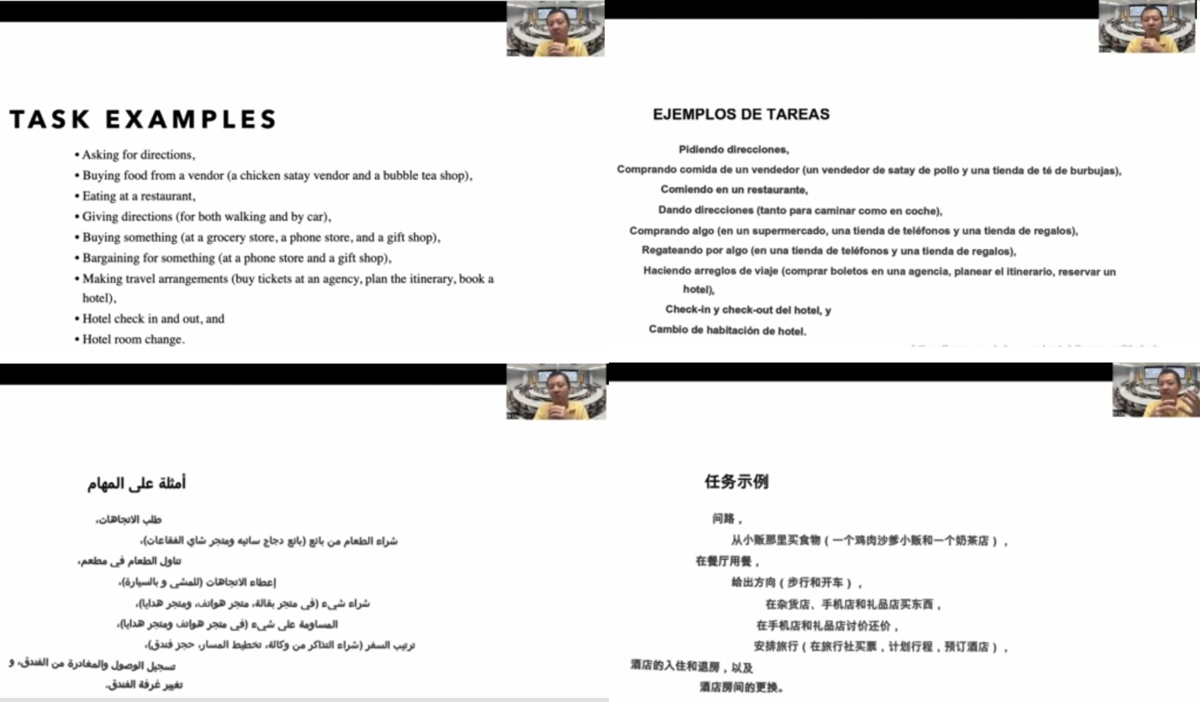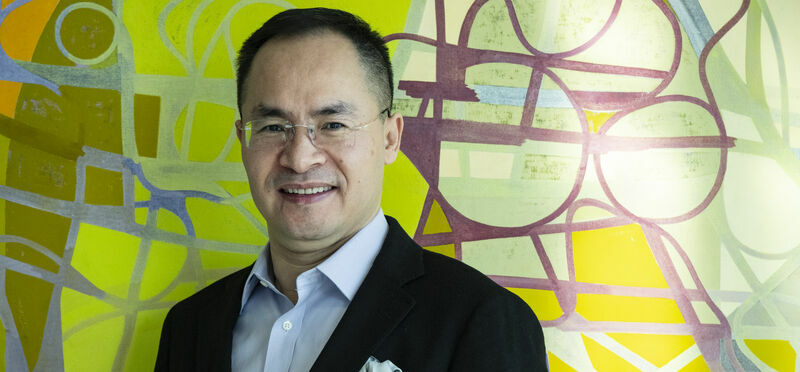Temple professor’s groundbreaking use of AI and virtual reality revolutionizes teacher education
Di Liu, assistant professor of instruction in the Department of Teaching and Learning in Temple University’s College of Education and Human Development, will be presented with the 2025 Best Practice Award for the Innovative Use of Technology during the American Association of Colleges for Teacher Education’s annual meeting in Long Beach, California, from Feb. 21 to 23.

Temple University’s College of Education and Human Development was recently awarded the 2025 Best Practice Award for the Innovative Use of Technology by the American Association of Colleges for Teacher Education (AACTE).
Di Liu, assistant professor of instruction in the Department of Teaching and Learning in the College of Education and Human Development, was recognized for his revolutionary use of artificial intelligence (AI) and virtual reality (VR) platform technology in preparing future educators to be more equipped to teach multilingual students.
“Through the innovative use of generative AI and immersive virtual reality, Di Liu is leading our college in preparing and supporting our educators to implement innovative practices that promote multilingualism and culturally responsive and sustaining practices,” said Monika Williams Shealey, dean of the College of Education and Human Development. “Our students will be equipped to use technological tools to engage more effectively with diverse learners and provide equitable educational opportunities.”
Wanda Brooks, chair of the Department of Teaching and Learning, similarly praised Liu’s efforts. “Di’s project reflects our long-standing dedication to innovation in education and the integration of advanced technologies like AI to transform teaching and teacher education,” said Brooks. “We are proud to support faculty-driven initiatives that harness emerging technologies, paving the way for impactful, future-focused educational practices."
Liu’s award-winning project received support from Temple’s Innovative Teaching with Makerspace Technology Grant and Temple CIBER International Business Research Award.
“It’s an honor to have the opportunity to showcase to the world the innovative, transformative teaching methods that we have infused with technology at Temple,” said Liu. “It is a recognition of the work that my colleagues and I are building together at Temple. We prepare educators who not only can use technology to advance education in today’s classrooms but also can lead innovative and transformative practices in education for the future.”
In Temple’s online graduate course, Teaching English in a Global Context, Liu’s innovations include VR platforms to showcase teaching, learning and sociocultural scenarios from various countries and regions. The technology enhances students’ multicultural awareness and fosters global perspectives.
Based on Temple’s global community, Liu collaborated with teachers and students in several countries—including Korea, China, Japan and Saudi Arabia—to capture teaching interactions using 360-degree cameras. He then integrated these immersive videos into Temple’s teacher education courses, allowing students to learn and better understand the nuances of classroom teaching in different countries and cultures. In a subsequent course, teachers constructed culturally responsive immersive virtual classrooms and practiced teaching within them.
“At Temple, we have established a pathway that uses immersive virtual reality to bring authentic classroom teaching and learning experiences from around the world directly to future teachers, allowing them to learn and engage with diverse cultural contexts in immersive 3D environments,” said Liu.
 Pictured is a screenshot of a classroom recorded in China. Temple Professor Di Liu established a cross-cultural immersive virtual reality video database to prepare culturally responsive English language teachers in Temple’s teaching English to speakers of other languages (TESOL) master of science in education program. (Photography courtesy of Di Liu)
Pictured is a screenshot of a classroom recorded in China. Temple Professor Di Liu established a cross-cultural immersive virtual reality video database to prepare culturally responsive English language teachers in Temple’s teaching English to speakers of other languages (TESOL) master of science in education program. (Photography courtesy of Di Liu)
Liu explains how it works this way: “Through immersive virtual reality recordings of classrooms in China, for example, our students analyze factors such as class size and instructional delivery method. They then explore and discuss strategies to make larger classes more learner-centered with a deeper understanding of learners’ home cultures. By using VR videos, we foster in-depth cultural awareness, enabling teachers to better support multilingual learners in their classrooms.”
 Pictured is an example of an immersive 3D environment from a culturally responsive teaching perspective. Students taking Temple’s online graduate course, Current Approaches to Teaching English Language Learners, can learn how to construct the virtual settings to give lessons as pictured. (Photography courtesy of Di Liu)
Pictured is an example of an immersive 3D environment from a culturally responsive teaching perspective. Students taking Temple’s online graduate course, Current Approaches to Teaching English Language Learners, can learn how to construct the virtual settings to give lessons as pictured. (Photography courtesy of Di Liu)
In addition, Liu used AI to teach English language teachers in Temple’s online graduate course, Current Approaches to Teaching English Language Learners. The 2024 fall semester class included domestic, international and Temple University Japan students who are first-language speakers of English, Arabic, Chinese, Spanish and Japanese.
In that class, Liu integrated HeyGen, a generative AI platform, to create multilingual instructional videos, enabling students to learn content knowledge and pedagogy in various languages. Students were also encouraged to bring their home cultures, languages and teaching materials by using ChatGPT for translations and explanations. He fosters a multilingual learning community where students can choose to learn in their preferred language(s) and actively contribute to classroom discussions in multiple languages. Also, students can learn content and language simultaneously, breaking language barriers for learners and teachers.
 Di Liu’s innovations include multilingual videos using HeyGen, an AI generator that can translate course-related materials into 26 languages. Students could choose their preferred language for learning in his online graduate course, Current Approaches to Teaching English Language Learners. (Photography courtesy of Di Liu)
Di Liu’s innovations include multilingual videos using HeyGen, an AI generator that can translate course-related materials into 26 languages. Students could choose their preferred language for learning in his online graduate course, Current Approaches to Teaching English Language Learners. (Photography courtesy of Di Liu)
“On behalf of AACTE, I am thrilled to congratulate Temple’s College of Education and Human Development on receiving the 2025 Best Practice Award for the Innovative Use of Technology,” said Cheryl Holcomb-McCoy, president and CEO of AACTE. “This recognition highlights their commitment to leveraging technology in transformative ways to prepare future educators for the dynamic demands of the classroom.”


